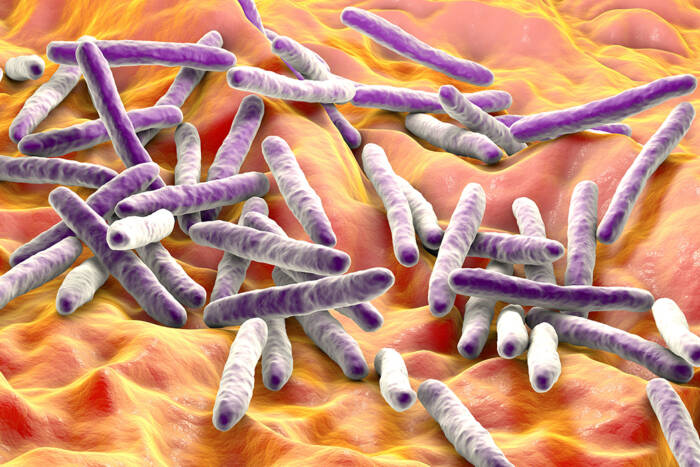Trial of new investigational AIDS vaccine begins in New York and Rochester
Healthy Volunteers Sought for New AIDS Vaccine Research Effort
The Aaron Diamond AIDS Research Center (ADARC), an affiliate of The Rockefeller University, and the International AIDS Vaccine Initiative (IAVI) announced today that they have begun a human trial of a new investigational vaccine to prevent HIV/AIDS. The trial is actively seeking healthy volunteers in New York City and Rochester, New York.
The trial is designed to evaluate the safety of a new DNA vaccine called ADVAX. The vaccine is designed to stimulate immune responses to prevent people who are uninfected with HIV/AIDS from contracting the disease, and the trial will gather preliminary data on whether ADVAX stimulates these immune responses.
The vaccine is tailored for the C strain of HIV that accounts for the most HIV infections worldwide and is prevalent in China and other developing countries, where millions of people are being infected with HIV every year. ADARC and IAVI have agreed that if ADVAX proves effective, it will be made available in developing countries at reasonable prices.
“There is an urgent need to slow the spread of HIV in the world, particularly in regions such as Asia that are experiencing rapidly increasing HIV infections,” said Dr. David Ho, director of ADARC and Rockefeller University’s Irene Diamond Professor. “This trial will help science to gain important information to move us towards the development of an effective vaccine, which could ultimately benefit countless people.”
“A preventive vaccine is the world’s best hope to stop the spread of the epidemic,” said Dr. Seth Berkley, President and CEO of IAVI. “ADVAX is a promising approach that broadens the pipeline of AIDS vaccines in human trials.”
The latest figures from UNAIDS are that approximately 14,000 people are becoming infected with HIV each day.
“Rockefeller University and the Aaron Diamond AIDS Center conducted the initial studies on HIV combination therapy in 1995,” said Paul Nurse, president of Rockefeller University and Nobel laureate for medicine. “We are hopeful that, in 2003, this vaccine trial will also add significantly to our goal of turning back this terrible epidemic through the development of a vaccine that can help prevent HIV infection in the first place.”
“It is imperative that scientists and community members work together to develop a safe and effective AIDS vaccine,” said Chris Collins, the Executive Director of AIDS Vaccine Advocacy Coalition (AVAC). “Community engagement in these efforts is essential to achieve progress in the fight against HIV/AIDS.”
The ADVAX vaccine uses synthetic DNA based on a part of the genetic material found in HIV. Unlike traditional vaccines that contain a weakened or killed form of a disease-causing agent, DNA vaccines instead contain only portions of the genetic material. This means ADVAX cannot cause HIV infection or AIDS.
The trial will enroll 45 healthy volunteers, both men and women, over the next few months. Study participants must be healthy, HIV-negative and at low risk of HIV infection. Participants will be assigned at random to receive either the investigational vaccine or an inactive solution, known as a placebo. Volunteers will visit the outpatient clinics (in either The Rockefeller University Hospital in New York City or the University of Rochester Medical Center) 12 times over 19 months.
About ADARC and The Rockefeller University
Established in 1991, the Aaron Diamond AIDS Research Center (ADARC) is the world’s largest private research laboratory devoted solely to biomedical research on HIV/AIDS. Under the direction of Dr. David Ho, ADARC has played an important role in research that has helped advance scientific understanding of HIV and improve clinical care for people with HIV/AIDS. ADARC is affiliated with The Rockefeller University, whose hospital, the first clinical research hospital in this country, created the setting for a new kind of scientist: the clinical investigator who serves as a link between the practicing physician and the basic scientist.
The Rockefeller University is a world-renowned center for research and graduate education in the biomedical sciences, chemistry, bioinformatics and physics. Founded by John D. Rockefeller in 1901 as the nation’s first institute for medical research, the university has a unique laboratory-based structure that encourages interdisciplinary research and collaboration. The university has dedicated its second century to translating the insights gained from genomics and molecular biology advances to improving public health.
About IAVI
The International AIDS Vaccine Initiative (IAVI; www.iavi.org) is a global nonprofit scientific organization working to speed the search for a vaccine to prevent HIV/AIDS. IAVI sponsors research partnerships to develop and test promising vaccine candidates. IAVI’s major financial supporters include the Bill & Melinda Gates Foundation; the Rockefeller, Sloan and Starr foundations; the World Bank; BD; and eight national governments that provide vital, ongoing support through the Canada Fund for Africa Secretariat of the Canadian International Development Agency, the UK Department for International Development, the US Agency for International Development, the Netherlands Ministry of Foreign Affairs, Development Cooperation Ireland, the Ministry of Foreign Affairs of Denmark, the Norwegian Royal Ministry of Foreign Affairs and the Swedish International Development Cooperation Agency.
About the University of Rochester Medical Center
With more than $122 million in NIH research grants, the University of Rochester Medical Center ranks in the top one-fifth of all medical centers in federally funded research. A bold, 10-year endeavor has resulted in two new research facilities and the recruitment thus far of 70 new scientists and 500 technicians and support personnel. Michael C. Keefer M.D., Principal Investigator for the HIV Vaccine Trials Unit, has been conducting HIV vaccine research studies at the university since 1988. More than 700 local citizens, age 18-60, have volunteered to participate in these studies.


